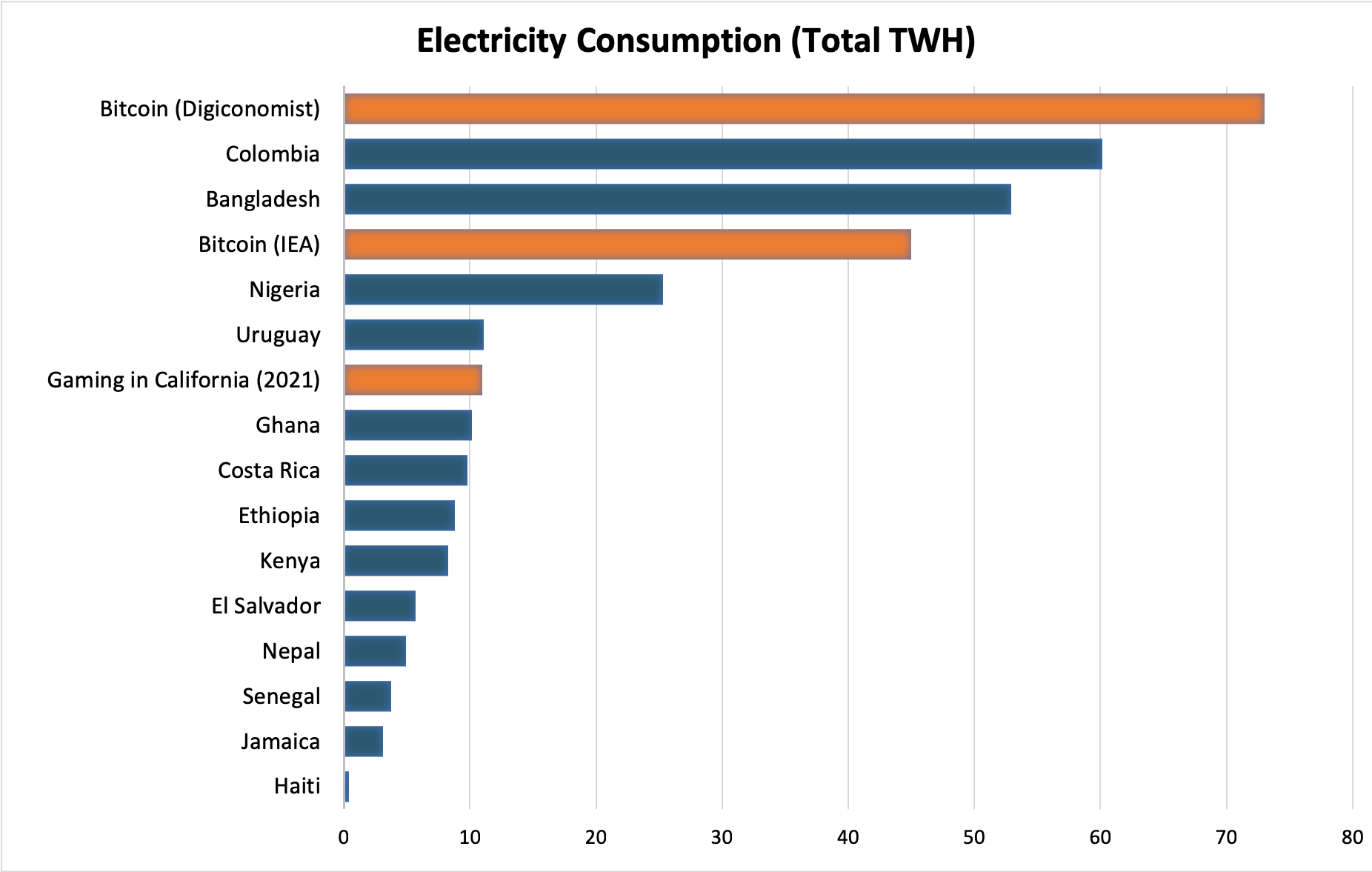Will Bitcoin cook the planet? A great Axios piece “No, Bitcoin won’t destroy our climate by 2033” argues that carbon emissions from the substantial energy consumption of bitcoin mining isn’t likely to significantly contribute to global warming. The debate was sparked in part by the Digiconomist’s popular Bitcoin Energy Consumption Index which pegged Bitcoin-related electricity use at a whopping ~70 terawatt hours (TWh) last year. A more conservative IEA estimate suggests it’s more like 45 TWh, though rising. Since this amount of energy is equivalent to just a fraction of the 900 TWh in electricity consumption growth last year alone, this is small fry. So even if Bitcoin is of questionable social and economic value, nothing to worry about, right?
Speaking of low-value uses of energy, about a month ago, a fascinating New Scientist article explained the spike in energy consumption of online gaming in California. Already estimated at 5 TWh in 2011, energy demand for gaming in the state is expected to reach 11 TWh by 2021. That’s just for gaming, just in California.
Worrying about (or not) the energy demands of gamers and cryptocurrencies are big stories for certain audiences. They’re trendy and frivolous activities and, hey, just a rounding error in a vast modern energy-intensive economy.
A different take-away could be that these trendy and frivolous activities consume more electricity than many countries. Here’s a small sample.

The deeper human story here is the yawning chasm of global energy inequality. California gamers will soon use more electricity than 100 million people in Ethiopia. Bitcoin already consumes more power than 200 million people in Nigeria.
This is not an argument that Bitcoin or gaming should stop. Nor should we try to take away air conditioning or festive holiday lighting or your hot tub.
Instead, the tremendous gaps in global energy use show why every country needs a high energy future. We estimate that 3 billion people live in a place where a deficient power system is a first-order barrier to fulfilling human potential or finding a job. As we weigh costs and tradeoffs, surely economic opportunity for everyone is a higher priority than Fortnite.


